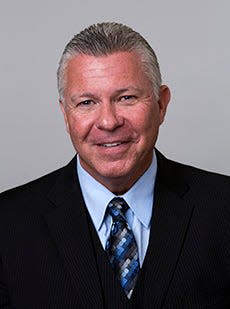Our health care heroes need help and support, too

You decide at the last minute to have dinner with your family or friends, envisioning a great experience at your favorite restaurant. Yet upon arriving, a 30-minute wait becomes an hour before being seated. Another 15 minutes passes before an apologetic server takes your order and it feels like an eternity for your meal to actually reach the table.
Extended waits are commonplace these days – whether dining out or sitting at home on hold, hoping a customer service agent picks up the line. The truth is we are all experiencing similar frustrations due to staffing reductions from a tight economy. But just imagine taking your loved one or friend to a hospital emergency room. How scary and frustrating does that wait scenario sound?
Approximately 7,000 New York City nurses from two different hospitals went on strike recently, sounding the alarm to help us understand their concerns for the state of health care. They told us about the impact the "triple-demic" (COVID, the flu and respiratory syncytial virus or RSV) is having on the system. The reality is that they are the system – and they are stressed to the breaking point.
Nancy Hagans of the New York State Nurses Association explained that some hospitals are so overcrowded that nurses are at times forced to "work without enough staff." Those who serve see what the rest of the world does not and overwhelming situations such as these can lead to burnout.
“Heroes Work Here” signs were a frequent sight in front of hospitals in the early days of the pandemic as I write in my new book," Heroes are Human: Lessons in Resilience, Courage and Hope from the COVID Front Lines." The book tells the stories of doctors, nurses and patients, and offers insights into self-care from my 40 years helping the military, law enforcement and first responders besieged with trauma.
We were applauding their bravery and sacrifices, banging pots and pans, acknowledging those in the uniforms of scrubs and lab coats. They battled the invisible enemy of COVID while we were asked to wear masks – and could still enjoy a happy hour standing 6 feet apart in our driveways.
Today the fear has subsided, and life is back to a reasonably normal version of what it was prior to the height of the pandemic for most of us – but not for our health care workers. I have spoken with many over the past three years and the lack of recognition or understanding of the work they do weighs heavily on them.
They have experienced unclear or overly demanding expectations; worked without enough time for family or relaxing to refresh; been drained mentally and physically; held hands of dying patients feeling helpless to save them; set up video calls with family members and friends for final goodbyes.
All of this has led to a concern that they have no more to give.
We learned decades after the Vietnam War to honor, thank and support our military troops for their service. We need to do the same for our health care community. While all wars are different, all wars are the same –including the COVID battlefield. The emotional, psychological and physiological toll on ordinary human beings doing extraordinary work creates a sense of hopelessness.
In 2011, I wrote a book titled "Surviving the Shadows: A Journey of Hope into Post Traumatic Stress," with chapters devoted to stories of people from all walks of life who have suffered from and found ways to cope with trauma. There was a particular reason for the title: I believe we all have shadows at some point in our lives. Yet we should never be afraid of one, because in order for a shadow to exist there has to be light nearby. It is our responsibility – to ourselves and to each other – to find that light.
Those who serve on the front lines are engaged in noble professions, and we owe a debt of gratitude to those fighting battles on foreign soil, the streets of our nation and against invisible enemies. The sad reality now is that good people with amazing professional credentials and experience are leaving health care positions – and that impacts all of us.
The nurse's strike is a loud cry for help, not only for them but for all of us. Make a difference: take time to honor, thank and support our health care workers. We need them now more than ever – that’s one thing we shouldn’t wait on.
Bob Delaney is a decorated former undercover New Jersey state trooper and an NBA referee for more than 30 years. Delaney and journalist Dave Scheiber have co-authored three books: "Heroes are Human: Lessons in Resiliency, Courage and Wisdom from the COVID Front Lines," "Covert: My Years Infiltrating the Mob" and "Surviving the Shadows: My Journey of Hope into Post-Traumatic Stress."
This article originally appeared on Sarasota Herald-Tribune: Our health care heroes need help and support, too
